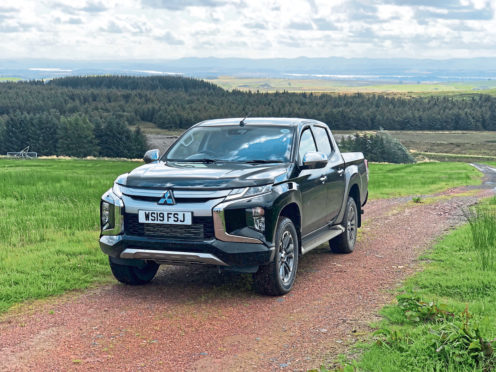Pick up trucks used to be utilitarian beasties that were only driven by tradesmen.
These days they still need to be capable of carrying and towing heavy loads, as well as feats of off road prowess, but increasingly we expect good on-road manners as well.
That’s what Mitsubishi have aimed for with the L200 Series 6. The latest generation pickup remains as rugged as ever but with a veneer of civilisation that makes it much easier to live with.
A smarter interior, soft opening tailgate and a more car-like driving experience all improve its appeal to lifestyle buyers.
It’s powered by a 2.2 litre diesel that develops 148bhp and 295lb ft of torque. Prices start at £21,200 and stretch to £31,885, excluding VAT. The top spec Barbarian X Double Cab I spent a week with cost just over £32,000.
The latest model has a smart new look, particularly at the front where Mitsubishi’s “Dynamic Shield” design gives it a style boost.

It’s one of the smaller pickups available in the UK, which made it easy to get on the driveway and drive through Dundee’s rush hour traffic. Its compact dimensions don’t hamper practicality, though – two trips to the tip in it got me rid of an old bathroom suite and a pile of other junk that had been languishing on my driveway for some weeks.
It will tow 3.5 tonnes, putting it at the forefront of its class, and it has a selectable four-wheel drive system. Most of the time I kept it in rear-wheel drive, which improves economy, but when conditions grew wintry I switched to four-wheel drive for extra traction.
I attended the launch of the L200 at Knockhill last year and there I put it through the facility’s punishing off road course, where it took even the toughest of obstacles in its stride.
Used as a daily runaround it’s no Ford Fiesta but it’s surprisingly easy to drive. You sit up above even Range Rovers, giving you a king of the road feel. There’s a bit of engine noise in the cabin but otherwise it’s pleasantly refined. A tight turning circle and nimble (for its size) steering complete a strong package.
There’s room in the back for average sized adults but taller passengers will find legroom a bit tight. Large door bins and a centre console provide storage and there are rear USB ports for passengers to charge mobile devices.
I liked the L200 a lot. It retains its formidable working pedigree but is more car-like than ever and easy to live with.
